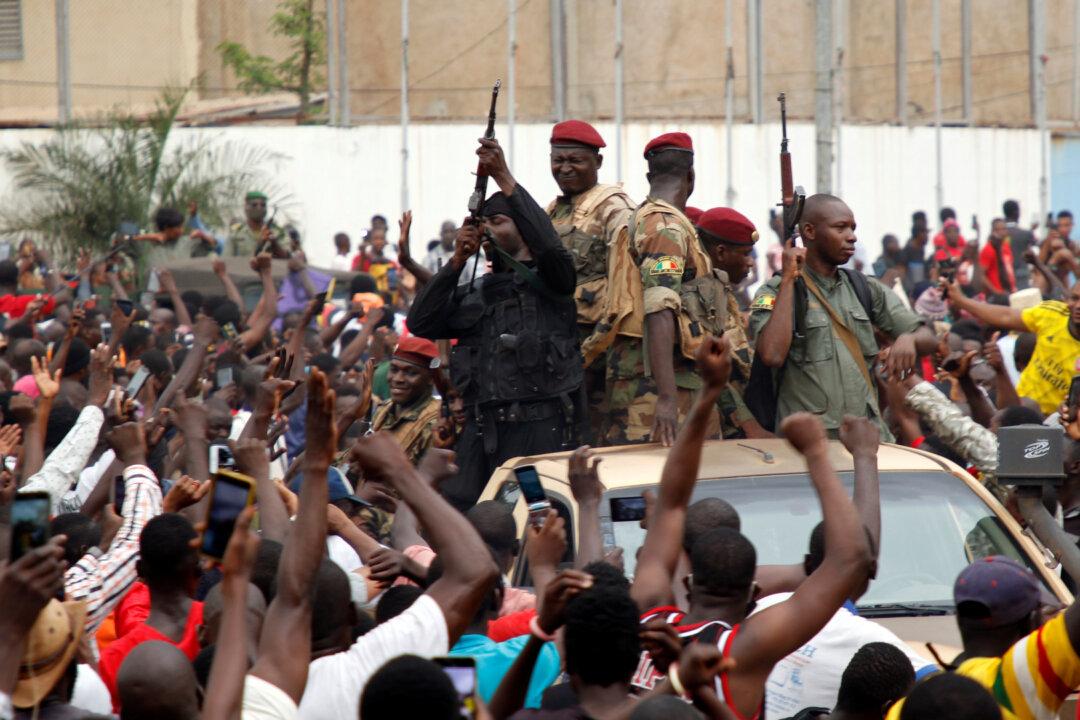BAMAKO, Mali—Soldiers who ousted Mali’s president in a coup promised on Aug. 19 to oversee elections within a “reasonable” time and moved swiftly to hold talks with one of the West African nation’s most influential power brokers.
President Ibrahim Boubacar Keita resigned and dissolved parliament on Aug. 18 after the mutineers detained him at gunpoint, further destabilizing a country in the grip of a jihadist insurgency and plagued by civil unrest.





